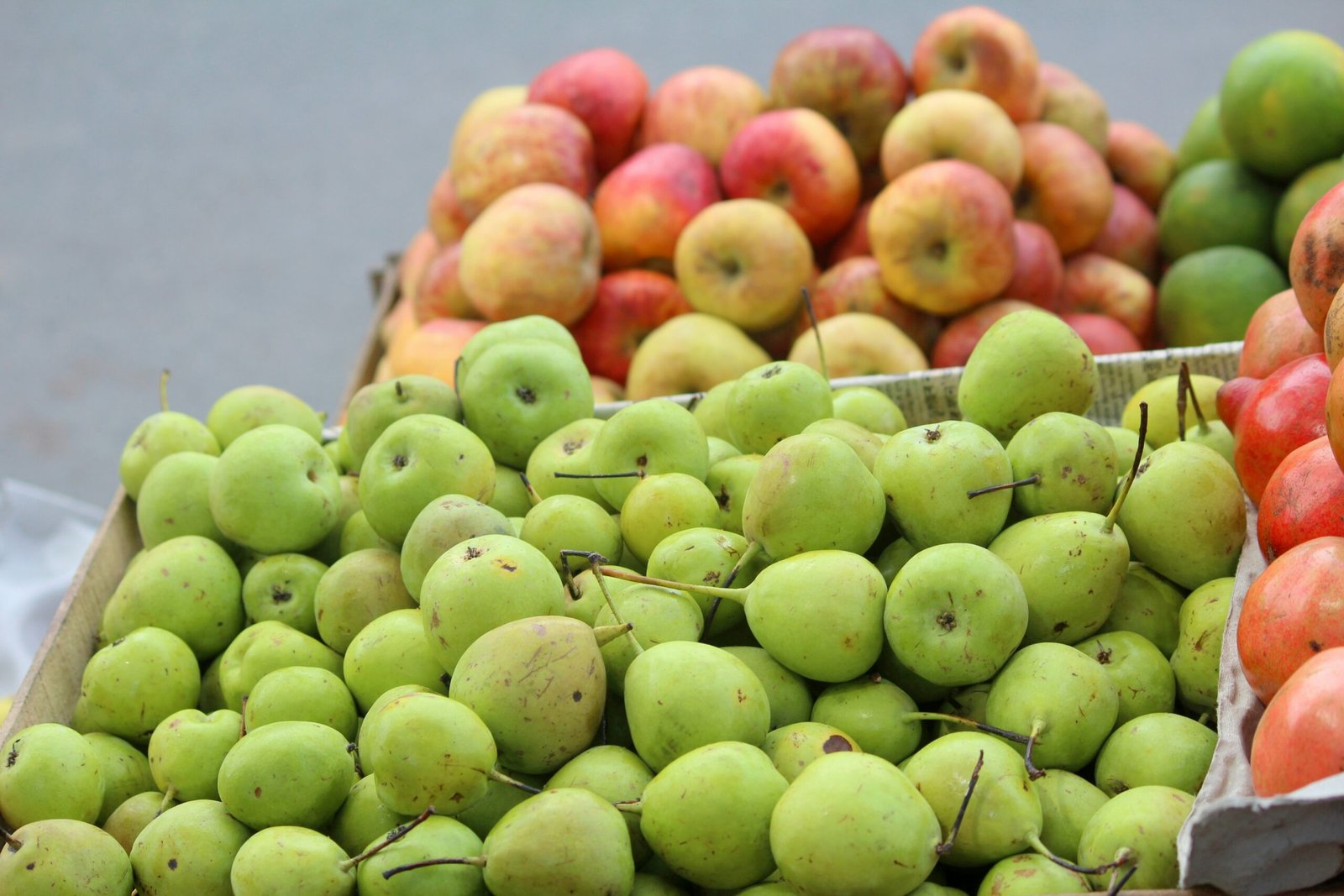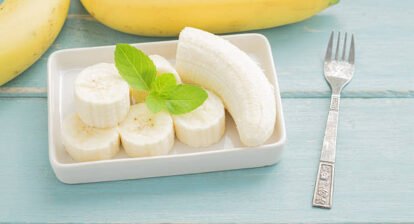https://www.profitablecpmrate.com/bwpetv09?key=69b5a96f33cdcb357a96f9f869e3d7ad
Introduction to Cucumbers
Cucumbers (Cucumis sativus) are a widely cultivated member of the gourd family, originating from South Asia, particularly from the Indian subcontinent. These refreshing fruits boast a high water content—approximately 95%—making them a staple in many diets, especially during warm seasons. Over the years, their cultivation has spread globally, leading to various types, including slicing, pickling, and burpless varieties. Each of these types serves distinct culinary purposes, highlighting the versatility of cucumbers across different cultures.
In culinary traditions worldwide, cucumbers are cherished for their crisp texture and mild flavor. They feature prominently in salads, sandwiches, and as garnishes for dishes, bringing not only aesthetic appeal but also a hydrating element to meals. In Mediterranean diets, for instance, cucumbers are essential in preparations like tzatziki, while in Asian cuisine, they are often used in stir-fries or served pickled. This multifaceted presence emphasizes their adaptability, fitting into both raw and cooked preparations.
Furthermore, cucumbers are often associated with health-conscious eating habits. Their low-calorie content combined with essential vitamins and minerals makes them an ideal addition to weight management diets. Rich in antioxidants and dietary fiber, the consumption of cucumbers is linked to promoting digestive health and enhancing overall well-being. The health benefits of cucumber extend beyond hydration; they contribute to skin health, weight loss efforts, and have been suggested to assist in lowering blood pressure. These attributes not only enhance individual health but also integrate seamlessly into diverse dietary regimes, reinforcing cucumbers’ status as a nutritional powerhouse.
Nutritional Profile of Cucumbers
Cucumbers are often overlooked in discussions about nutrient-rich foods, yet they have a remarkable nutritional profile that offers numerous health benefits. Comprised primarily of water, cucumbers contain about 95% water, making them an excellent hydrating snack. This high water content helps maintain hydration and can aid in the body’s overall water balance, essential for various physiological processes.
In terms of macronutrients, cucumbers are low in calories, containing only about 16 calories per 100 grams. This characteristic, combined with their crisp texture, makes cucumbers a popular choice for those looking to manage their weight while enjoying a satisfying crunch. They are very low in fats and carbohydrates, making them a healthy addition to a balanced diet.
Looking closer at cucumbers, they are a good source of several vitamins and minerals. One of the standout nutrients is vitamin K, which plays a vital role in bone health and blood clotting. A serving of cucumber provides a significant amount of this essential vitamin, contributing to overall health and wellness.
Additionally, cucumbers are rich in potassium, an important mineral that helps regulate fluid balance, muscle contractions, and nerve signals. Adequate potassium intake helps lower blood pressure and can reduce the risk of cardiovascular diseases. Moreover, cucumbers contain beneficial compounds such as antioxidants, which help combat oxidative stress in the body. Flavonoids and tannins found in cucumbers contribute to their anti-inflammatory properties.
The combination of these nutrients and compounds highlight the impressive health benefits of cucumber. Incorporating cucumbers into your diet can support hydration, weight management, and overall health. With such a rich nutritional profile, they serve as an excellent addition to salads, smoothies, and various dishes.
Hydration and Weight Management
Cucumbers are composed of approximately 95% water, making them one of the most hydrating foods available. This high water content not only helps to maintain bodily hydration but also plays a crucial role in various physiological functions, including temperature regulation and nutrient transport. For those seeking to manage their weight effectively, incorporating cucumbers into their diet can be beneficial due to their low caloric content and ability to promote satiety.
The importance of hydration in weight management cannot be overstated. Adequate fluid intake helps to support metabolic processes and can lead to improved energy levels and exercise performance. Furthermore, consuming water-rich foods like cucumbers can assist in reducing overall calorie intake, as they provide volume in the diet without significantly increasing calorie count. This means that by replacing higher calorie snacks with cucumber slices, individuals may find it easier to achieve their weight management goals while still feeling full and satisfied.
Cucumbers and Digestive Health
Cucumbers are not only a refreshing addition to meals but also provide substantial health benefits, particularly for digestive health. One of the key components of cucumbers is their high water content, which can aid in hydration. Adequate hydration is essential for maintaining optimal digestive function, as it helps to soften stool and facilitates its passage through the digestive tract.
Moreover, cucumbers are an excellent source of dietary fiber, primarily found in their skin. Fiber plays a critical role in promoting healthy digestion. It adds bulk to the stool, making it easier to pass and thereby aiding in the prevention of constipation. Regular consumption of fiber-rich foods, such as cucumbers, is associated with improved bowel regularity, allowing for a more efficient elimination process. This is particularly relevant in today’s fast-paced lifestyle, where dietary fiber intake can often be insufficient.
Furthermore, the health benefits of cucumber extend beyond mere digestion; they also positively influence the gut microbiome. A balanced gut microbiome is essential for overall digestive health, as it assists in the breakdown of foods, absorption of nutrients, and prevention of gastrointestinal disorders. The fiber in cucumbers acts as a prebiotic, providing nourishment to beneficial gut bacteria. By fostering a diverse and balanced gut microbiome, cucumbers may help reduce the risk of digestive issues, such as irritable bowel syndrome and inflammatory bowel diseases.
Incorporating cucumbers into one’s diet could therefore be a simple yet effective strategy to support digestive health. Their versatility allows them to be enjoyed in salads, smoothies, and snacks, making it easier to reap their health benefits. Overall, the combination of hydration, fiber content, and prebiotic properties makes cucumbers a valuable addition to any diet aiming to improve digestive function.
Antioxidant Properties of Cucumbers
Cucumbers are not only a refreshing addition to various dishes but also deliver significant health benefits, primarily due to their rich antioxidant content. Among the notable antioxidants found in cucumbers are flavonoids and tannins, which contribute to their role in combating oxidative stress. Oxidative stress occurs when there is an imbalance between free radicals and antioxidants in the body, leading to cellular damage and an increased risk of chronic diseases such as heart disease and cancer.
Flavonoids, which are a class of antioxidants present in cucumbers, help neutralize harmful free radicals. By scavenging these unstable molecules, flavonoids reduce oxidative damage to cells, potentially lowering the likelihood of developing conditions associated with aging, such as neurodegenerative diseases. In addition, these compounds possess anti-inflammatory properties, further contributing to the overall health benefits of cucumbers by aiding in the prevention of inflammation-related diseases.
Tannins, another group of antioxidants found in cucumbers, promote health by supporting the immune system. These compounds have been shown to have antimicrobial effects, which can help the body fend off infections and promote overall wellness. Including cucumbers in one’s diet can enhance the body’s ability to fight inflammatory processes and support cardiovascular health. The regular consumption of cucumber can therefore serve as a proactive approach to maintaining health and potentially reducing the risk of chronic illnesses.
Incorporating cucumbers into your meals not only adds a hydrating element to your diet but also serves as a potent source of antioxidants. The health benefits of cucumber extend beyond their low-calorie nature; their antioxidant properties play a crucial role in promoting long-term health and well-being, making them a valuable addition to any nutritional plan.
Skin Health Benefits
Cucumbers are well recognized not only for their refreshing taste but also for the notable health benefits of cucumber that extend to skin health. One of the key advantages lies in their high water content—approximately 95%—which helps maintain skin hydration. This hydration can prevent dryness and contribute to a radiant complexion. When consumed regularly, cucumbers can effectively aid in retaining moisture levels within the skin, showcasing their role as a natural moisturizer.
Moreover, cucumbers are rich in essential nutrients, including vitamins A, C, and K, as well as several B vitamins. Vitamin C, in particular, is known for its antioxidant properties, which help combat skin aging by neutralizing free radicals that damage skin cells. This vitamin is also critical for collagen production, essential for maintaining skin elasticity. Additionally, vitamin A plays a crucial part in skin repair and regeneration, while vitamin K can help diminish dark circles and improve skin tone.
The presence of minerals such as magnesium, potassium, and silica also contributes to the restorative effects on the skin. Magnesium is known for its calming properties, which can soothe irritation, while silica aids in strengthening connective tissues, thus promoting healthier skin structure. Many skincare products, such as masks and serums, leverage cucumber extracts due to their cooling and soothing properties, making them ideal for reducing puffiness and irritation. Their anti-inflammatory properties also make cucumber a valuable ingredient for treating sunburns and skin irritations.
In conclusion, integrating cucumbers into your diet can provide numerous health benefits of cucumber that directly impact skin health. By enhancing hydration, supplying essential nutrients, and offering anti-inflammatory effects, cucumbers present a holistic approach to promoting skin vitality and overall appearance.
Cucumbers and Heart Health
Cucumbers, often regarded as a refreshing addition to salads and sandwiches, offer significant health benefits, particularly for the cardiovascular system. One of the most notable aspects of cucumbers is their potassium content. Potassium is a vital mineral that plays a crucial role in maintaining healthy blood pressure levels. A diet rich in potassium can help counteract the effects of sodium, which is known to elevate blood pressure. By aiding in the regulation of blood pressure, cucumbers can contribute to overall heart health.
In addition to potassium, cucumbers are remarkably low in calories and fat. This characteristic makes them an ideal food choice for those aiming to maintain or lose weight while ensuring they receive essential nutrients. A healthy weight is a key factor in reducing the risk of cardiovascular diseases, such as hypertension, heart attack, and stroke. Incorporating cucumbers into a balanced diet can help achieve this goal without compromising nutritional value.
Moreover, the high water content of cucumbers, around 95%, contributes to hydration and can assist in overall bodily function, including the efficient functioning of the heart. Staying hydrated is critical for maintaining optimal blood circulation and preventing the thickening of the blood, which can lead to increased strain on the heart.
Furthermore, cucumbers contain antioxidants such as flavonoids and tannins that can protect the cardiovascular system by reducing inflammation and oxidative stress. This allows cucumbers not only to enhance overall health but also to potentially lower the risk of heart-related ailments.
Overall, the regular consumption of cucumbers can provide versatile health benefits, particularly concerning heart health. Their potassium content, low-calorie nature, and hydrating properties collectively contribute to a heart-healthy diet that promotes longevity and wellness.
Cucumbers in Different Diets
Cucumbers are an incredibly versatile vegetable that can seamlessly fit into a variety of dietary lifestyles, thanks to their refreshing flavor and numerous health benefits of cucumber. For those following a vegan diet, cucumbers serve as a fantastic base for salads. Combining them with other vegetables such as tomatoes, bell peppers, and avocados can create nutrient-dense dishes. A simple cucumber salad dressed with olive oil, lemon juice, salt, and pepper captures the essence of fresh ingredients while delivering essential vitamins and hydration.
In ketogenic diets, where carbohydrate intake is strictly monitored, cucumbers provide a crunchy and hydrating alternative that is low in carbs. These vegetables can be sliced or spiralized to create cucumber noodles, which can be topped with pesto or marinara sauce for a light yet satisfying meal. Additionally, they can be incorporated into wraps; using cucumber slices as a substitute for traditional bread adds texture without the extra carbohydrates.
The Mediterranean diet, known for its emphasis on fruits, vegetables, whole grains, and healthy fats, also benefits from the inclusion of cucumbers. Greek cuisine often features this beloved vegetable, particularly in dishes such as Tzatziki sauce, where cucumbers are blended with yogurt, garlic, and herbs. This sauce not only pairs well with grilled meats or fish but also serves as a fresh dip for vegetables or whole grain pita bread, maximizing both taste and the health benefits of cucumber.
Incorporating cucumbers into smoothies is another innovative option, as they blend well with fruits like pineapple or strawberries, providing additional hydration and nutrients. The possibilities are endless, making cucumbers an excellent addition to various diets, each taking full advantage of their distinct flavor and health-promoting properties.
Conclusion and Practical Tips
Cucumbers are not only a refreshing addition to our meals but also a powerhouse of health benefits that contribute significantly to overall wellness. Rich in vitamins, minerals, and antioxidants, cucumbers provide numerous health benefits, including hydration due to their high water content, improved digestion through dietary fiber, and a low-calorie alternative that can aid in weight management. Their anti-inflammatory properties and ability to support skin health further highlight the importance of incorporating cucumbers into a balanced diet.
To enjoy the multitude of health benefits of cucumber, consider integrating this versatile vegetable into your daily meals in various creative ways. One simple method is to add slices of cucumber to salads, enhancing not just the texture but also the nutritional value of your dish. You may also opt for cucumber sandwiches or wraps, using whole grain bread for a wholesome meal. Another popular choice is to incorporate cucumbers into smoothies or juices, blending them with other fruits and vegetables for an invigorating beverage that is both refreshing and healthy.
Furthermore, pickling cucumbers is an excellent way to preserve their nutritional qualities while adding a tangy flavor to your meals. Homemade cucumber pickles serve as a nutritious snack and can be used as a side dish or condiment in various dishes. For individuals seeking a delightful snack, cucumber sticks with hummus or yogurt dip can be a satisfying and low-calorie choice.
Encouraging curiosity and experimentation in the kitchen can lead to the discovery of new, healthful ways to enjoy cucumbers. As you explore the various options, you will undoubtedly appreciate the remarkable health benefits of eating cucumbers regularly, transforming them from a simple vegetable into a staple in your healthy eating routine.
Here is a bonus for you because you read the article to the end. Click on the link below and be the first person to discover many exciting online business opportunities> https://www.profitablecpmrate.com/nq7my1t66a?key=bb2d4ae95c421da5ae34a73884b95965







